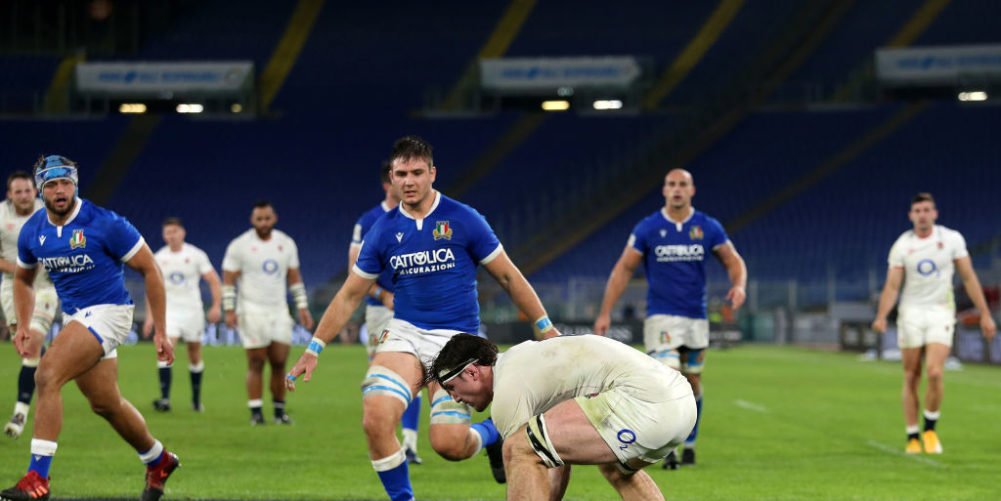IN many ways I feel for Italian rugby. I understand the pain they must feel as a nation that loves Rugby Union, but does not truly understand or know it in the way that it is known in leading rugby nations around the world, such as England, Wales, France, New Zealand and South Africa, where it is part of sporting culture.
It makes it difficult to establish a wide enough playing base when the game is not played very much in schools or in a club network that is established throughout the whole country, and where mini sections introduce rugby to generations of youngsters.
They have had a domestic league structure in Italy for some time, and I know that Michael Lynagh and David Campese both went and played there.
I’m not an expert in how long it takes for the game to take root in another country, but my impression of rugby in Italy is that it tends to be fragmented, with hot-spots in a few parts of the country where the game is established, but then much larger areas where it is not really known, or played.
There is also a problem of some of their best players leaving Italy for club contracts in France and England, rather than being on home soil to inspire the next generation of players.
However, Jake Polledri is a great addition to the Italian side, and the Gloucester flanker has come on so well he would have been pushing to start for England if he had not opted for the land of his father.
Polledri learned his rugby in England, and the big question is how long will it be before Italy starts to produce lots of Polledris of its own?
The quality of coaching at international level clearly helps, but although the likes of Nick Mallett, John Kirwan and Conor O’Shea brought real credibility as Italy coaches, the structure below it is fragile – and it leaves you requiring individuals to lift the profile of the game.
Good, high profile coaches help, but it is plastering over the bigger issue of the failure of Italy to be truly competitive on a consistent basis in the Six Nations since they were included in the tournament in 2000.
They have had fairytale victories over France, Wales, Ireland, Scotland, and even a one-off autumn win over the Springboks in Florence in 2016, but in recent times in the Six Nations the story has been all wooden-spoon.
Going into the final round of the 2020 Six Nations nothing has changed. Italy are again at the foot of the table, and had not secured even a single losing bonus point before their last game against England.
It is why the debate about Italy’s continued involvement in the Six Nations is not going to go away.
I am not an advocate for saying that the Six Nations has to remain six, because it could revert back to being the Five Nations if there are good enough reasons for doing so.
As with most things, it is a balance. If Italy were removed, five fewer games would be less revenue for the remaining Five Nations, but would also mean better player welfare because of more rest weekends.
As things stand, Italy are a bye for each of their Six Nations opponents, so that also gives coaches an opportunity to rest key players, or give others a chance to impress by starting their bench players.
This is not specific to Rugby Union, because in all sports you have your better teams at the top, and it gives them the chance to experiment against those at the bottom.
It’s also the job of the established rugby nations to spread the message that it’s a great game to play, and I realise that I was lucky to play mini rugby at Bath before graduating to junior club rugby with Walcot Old Boys, and also being at a comprehensive school which played half a term of football, and then half a term of rugby.
The difference is that it’s been an established game here with a tradition stretching back to Webb-Ellis picking up the ball.
But hopefully rugby in Italy will develop a nationwide profile, and provide the second tier of nations in European rugby, such as Spain, Germany, Romania, and Poland, with an example of how to give more youngsters more opportunities to play.























